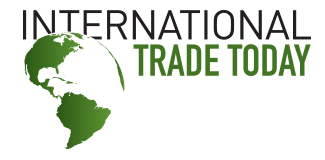USTR Tai Hopes Section 301 Review Will Be Released 'Soon'
U.S. Trade Representative Katherine Tai said she hopes "we can announce the result of [the Section 301] review soon," though she later declined to say whether that would be when she appears next week before the House and Senate committees that oversee her office.
Tai, who was speaking April 11 at the National Council of Textile Organizations annual conference, said NCTO member comments in the Section 301 tariffs review were valued input.
NCTO CEO Kim Glas introduced Tai as her "dear friend," and the USTR told the group, as she had the previous year, that her office is committed to "safeguarding the strong yarn-forward rules of origin for the CAFTA-DR." The room applauded.
She said the textile and apparel industry was one of the first to be harmed by international trade. "We saw so much production leave the United States, in part because of our trade policy," she said, and when plants closed, it was devastating to small towns where they were located.
"I'm here to tell you that I hear you, the president and vice president hear you, and we are on your side. This is why we are taking a new approach to trade, one that puts working families first and strives for resilience and durable growth, one that addresses and advances the interests of all parts of our economy and does not pit Americans against Americans," Tai said.
She said that textile manufacturers have been told that their industry isn't strategically important to the U.S. economy.
"I know that you've been told this for a long time. But we all know how false and shortsighted that narrative was," as seen when fabric mills pivoted to making hospital gowns and other personal protective gear during the COVID-19 pandemic, when the nonwoven fabric versions from Asia couldn't be sourced due to the huge spike in demand.
"This is exactly why our trade policy should be harnessed to build resilience in sectors like yours, and not to undermine them," she said, to applause.
The domestic textile and apparel industry employs 500,000 workers in an economy with 132 million full-time workers, or roughly one-third of 1% of the workforce.
"Your workers and your communities continue to be foundations of our economy," Tai said.
Before Tai spoke, NCTO Chairman Norman Chapman said NCTO's priorities are maintaining the yarn-forward rule in CAFTA, passing a fully retroactive Miscellaneous Tariff Bill, which eliminates tariffs on some goods that aren't produced in the U.S., "promoting tariffs on finished products" and "closing the de minimis loophole." He said that NCTO's lobbying on de minimis "turned the tide and changed the tenor of conversations in Washington" on de minimis.
"I understand your interest in renewing the Miscellaneous Tariff Bill," Tai said, without saying if the administration also supports another round of MTB. A think tank analyst recently said MTB was unlikely to pass in this Congress, as momentum is draining away from the push (see 2403260051).
Tai also said she heard NCTO's arguments that de minimis is causing manufacturers to close some facilities, because the Central American apparel industry is losing business as consumers buy cheap clothes directly from China.
"We are closely following any congressional action" on that topic, she said.



